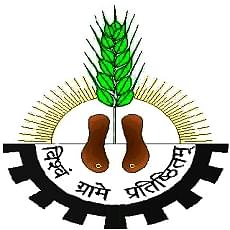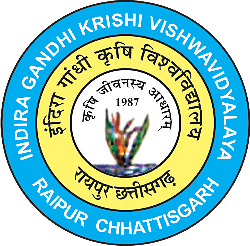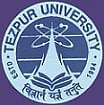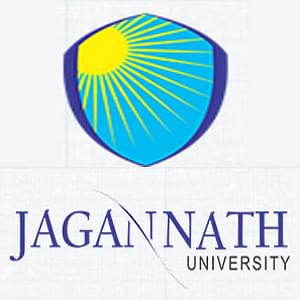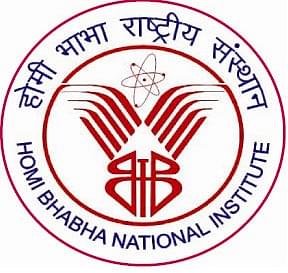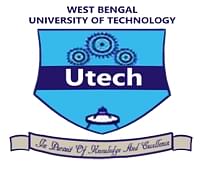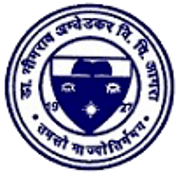Introduction about BCA (hons.)
A Bachelor of
Computer Applications (BCA) from the top college in India with Honours
(Hons.) is an undergraduate academic degree program typically offered by
universities or colleges. It is designed to provide students with a
comprehensive understanding of computer applications and programming languages,
along with a strong foundation in theoretical concepts and practical skills.
The Honours
designation often indicates a more rigorous and specialized curriculum compared
to a standard BCA program. Students pursuing BCA (Hons.) are typically expected
to delve deeper into specific areas of computer science, such as software
development, database management, web technologies, networking, and computer
security.
Throughout the
course of study, students engage in a combination of theoretical coursework,
practical laboratory sessions, projects, and internships to develop both their
theoretical knowledge and hands-on skills. They may also have the opportunity
to undertake research projects or collaborate with industry partners to gain
real-world experience.
Upon completion of
the BCA (Hons.) program, graduates are equipped with the necessary skills and
knowledge to pursue various career paths in the field of information
technology, including software development, systems analysis, database
administration, web development, and IT consulting. Additionally, some
graduates may choose to further their education by pursuing postgraduate
studies or professional certifications to enhance their expertise and career
prospects in the rapidly evolving field of computer science.
What is eligibility criteria for BCA (hons.) ?
The eligibility
criteria for a Bachelor of Computer Applications (BCA) with Honours (Hons.) at the top college program may vary slightly depending on the institution offering
the program. However, the general eligibility requirements typically include:
·
Educational
Qualifications:
Candidates must
have completed their higher secondary education (10+2) or equivalent from a
recognized board or institution.
They should have
studied Mathematics as one of the core subjects in their 10+2 curriculum.
·
Minimum
Percentage:
Many institutions
have a minimum percentage requirement in the qualifying examination, which may
vary from 45% to 60% aggregate marks. However, this can vary based on the
institution's admission policy.
·
Entrance
Exams (if applicable):
Some universities
or colleges may conduct entrance exams for admission to the BCA (Hons.)
program. Students are required to qualify in these exams to be eligible for
admission. The syllabus for these entrance exams typically includes topics
related to Mathematics, Computer Science, English, and Logical Reasoning.
·
Other
Requirements:
Some institutions
may have additional requirements, such as English language proficiency tests
(if the medium of instruction is English) or personal interviews.
It's essential for
prospective students to thoroughly research the specific eligibility criteria
and admission procedures of the institutions they are interested in applying to
for the BCA (Hons.) program. This ensures that they meet all the requirements
and can submit a strong application for admission.
What is admission process for BCA (hons.)?
The admission
process for a Bachelor of Computer Applications (BCA) with Honours (Hons.)
program typically involves several steps, which may vary slightly depending on
the institution offering the program. However, the general process usually
includes the following:
§ Notification of Admission:
Institutions
release admission notifications or prospectuses detailing the availability of
seats, eligibility criteria, important dates, and application procedures.
§ Application Form Submission:
Prospective
students need to obtain the application form either online through the
institution's website or offline from the admissions office. They must fill out
the application form accurately and completely, providing all required personal
and academic information.
§ Submission of Required Documents:
Applicants are
usually required to submit certain documents along with the application form,
such as:
Mark
sheets/certificates of qualifying examinations (10+2 or equivalent)
Transfer
certificate (TC) or school leaving certificate (SLC)
Character
certificate
Caste certificate
(if applicable)
Passport-sized
photographs
These documents
serve as evidence of the applicant's eligibility for the program.
§ Entrance Examination (if applicable):
Some institutions
may conduct entrance examinations for admission to the BCA (Hons.) program.
Students need to register for these exams, appear for them, and obtain a
qualifying score to be eligible for admission. The syllabus for these exams
typically includes topics related to Mathematics, Computer Science, English,
and Logical Reasoning.
§ Merit List/Selection Criteria:
After receiving
applications and conducting entrance exams (if applicable), institutions
prepare a merit list based on various factors such as academic performance,
entrance exam scores, and other eligibility criteria.
Some institutions
may also consider factors like extracurricular activities or achievements.
§ Counseling and Interview (if
applicable):
Shortlisted
candidates may be required to participate in counseling sessions or interviews
conducted by the institution. These sessions provide an opportunity for
candidates to discuss their academic background, interests, and career goals.
§ Final Admission Offer:
Based on the merit
list, counseling sessions, and interview performance (if applicable),
institutions offer admission to selected candidates. Successful candidates
receive admission letters specifying the terms and conditions of admission,
including fee payment deadlines.
§ Fee Payment and Enrollment:
Finally, admitted
students need to pay the prescribed fees within the stipulated time frame to
secure their admission. Upon fee payment, they become officially enrolled in
the BCA (Hons.) program.
It's important for
prospective students to carefully review the admission guidelines and
procedures specified by the institution they are applying to, as these may vary
from one institution to another. Additionally, staying updated with
admission-related notifications and deadlines is crucial to ensure a smooth
application process.
What is syllabus for BCA (hons.)?
The syllabus for a
Bachelor of Computer Applications (BCA) with Honours (Hons.) program typically
covers a wide range of topics related to computer science, software
development, programming languages, database management, networking, web
technologies, and other relevant subjects. While specific courses may vary
depending on the institution offering the program, here's a general overview of
the syllabus commonly followed in BCA (Hons.) programs:
![]() Foundation Courses:
Foundation Courses:
Mathematics for
Computing
Discrete
Mathematics
Computer
Fundamentals and Office Automation
Fundamentals of
Information Technology
Business
Communication
Principles of
Management
Financial
Accounting
![]() Core Computer Science Courses:
Core Computer Science Courses:
Data Structures and
Algorithms
Object-Oriented
Programming using Java or C++
Database Management
Systems
Operating Systems
Computer Networks
Software
Engineering
Computer
Architecture and Organization
Theory of
Computation
Compiler Design
Computer Graphics
![]() Elective Courses:
Elective Courses:
Mobile Application
Development
Artificial
Intelligence
Cloud Computing
Internet of Things
(IoT)
Cyber Security
Data Analytics and
Data Mining
Machine Learning
Web Development
Technologies (HTML, CSS, JavaScript, PHP, etc.)
![]() Project Work:
Project Work:
Typically, students
are required to undertake a major project during their final year of study.
This project allows them to apply the knowledge and skills acquired throughout
the program to solve real-world problems or develop innovative software solutions.
![]() Practical Labs:
Practical Labs:
![]() In addition to theoretical courses, BCA
(Hons.) programs often include practical laboratory sessions where students
gain hands-on experience in programming, database management, networking, and
software development tools.
In addition to theoretical courses, BCA
(Hons.) programs often include practical laboratory sessions where students
gain hands-on experience in programming, database management, networking, and
software development tools.
![]() Internship/Industrial Training (optional):
Internship/Industrial Training (optional):
Some institutions
may include an internship or industrial training component as part of the
curriculum, providing students with opportunities to gain practical experience
in the IT industry and apply their classroom learning in real-world settings.
It's important to
note that the syllabus for BCA (Hons.) programs may be periodically updated to
incorporate emerging trends and technologies in the field of computer science.
Additionally, the specific courses and their sequencing may vary from one institution
to another. Prospective students should refer to the detailed curriculum
provided by the institution they are interested in for more specific
information.
What are scopes after BCA (hons.)?
Completing a
Bachelor of Computer Applications (BCA) with Honours (Hons.) from the top affordable college opens up a wide range of career opportunities in the
field of information technology. Here are some common career paths and scopes
available to graduates:
v Software Developer/Engineer:
BCA (Hons.)
graduates can work as software developers or engineers, designing, developing,
and maintaining software applications for various platforms such as web,
mobile, desktop, or embedded systems. They may specialize in programming
languages like Java, C++, Python, or JavaScript.
v Database Administrator:
Graduates with
strong knowledge of database management systems can pursue careers as database
administrators, responsible for designing, implementing, and maintaining
databases to ensure data integrity, security, and performance.
v Systems Analyst:
Systems analysts
analyze an organization's IT infrastructure, processes, and systems to identify
areas for improvement and develop solutions to enhance efficiency,
productivity, and performance.
v Network Administrator:
BCA (Hons.)
graduates with expertise in computer networks can work as network
administrators, responsible for managing, configuring, and securing an
organization's computer networks and communication systems.
v Web Developer:
Graduates
proficient in web technologies such as HTML, CSS, JavaScript, and server-side
scripting languages like PHP, ASP.NET, or Node.js can pursue careers as web
developers, creating dynamic and interactive websites and web applications.
v IT Consultant:
BCA (Hons.)
graduates can work as IT consultants, providing advisory services to
organizations on technology-related matters, such as system implementations,
software selection, IT infrastructure planning, and digital transformation
strategies.
v Quality Assurance (QA) Analyst/Tester:
QA analysts or
testers are responsible for ensuring the quality, reliability, and
functionality of software applications by performing testing activities,
identifying defects, and providing feedback to developers for improvements.
v Cybersecurity Analyst:
With the increasing
importance of cybersecurity, BCA (Hons.) graduates can specialize in
cybersecurity and work as cybersecurity analysts, responsible for protecting an
organization's IT systems and data from cyber threats and attacks.
v Entrepreneurship:
BCA (Hons.)
graduates with entrepreneurial aspirations can start their own software
development firms, IT consulting businesses, or technology startups, leveraging
their skills and knowledge to create innovative solutions and services.
v Further Education:
Graduates
interested in furthering their education can pursue postgraduate studies such
as Master of Computer Applications (MCA), Master of Science (MSc) in Computer
Science, or specialized certifications in areas like cloud computing, data
analytics, artificial intelligence, or project management.
The scope and
opportunities after BCA (Hons.) depend on factors such as individual interests,
skills, specialization, industry demand, and market trends. Continuous
learning, staying updated with emerging technologies, and gaining practical
experience through internships or projects can further enhance career prospects
in the dynamic field of information technology.
About us :
Universityfindo provides you a platform where you fulfill your dreams and takes a step forward towards in your life . We provide you all courses with affordable fees and safe environment . For more information contact us on our website : universityfindo.com .





